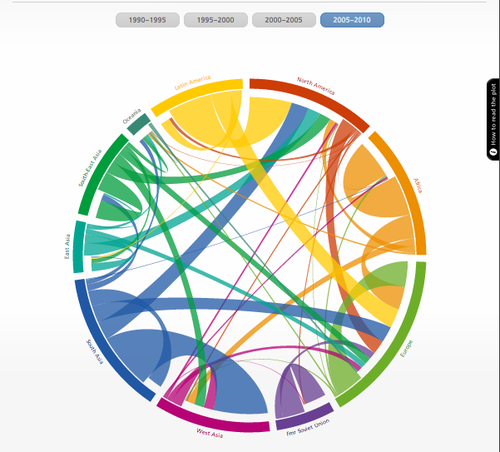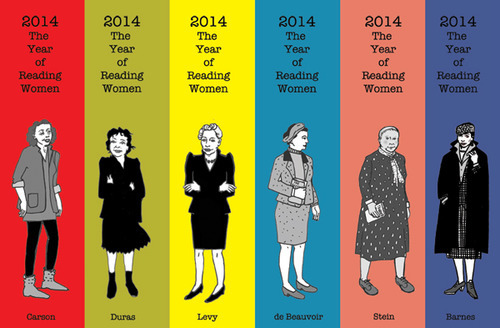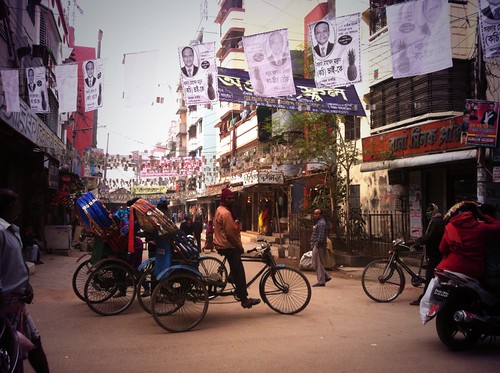Below, in German.
Dear creators, curators, founders, employers, employees, anyone who is part of something that has been criticised for its lack of diversity,
I want to make sure you understand why we're criticising and calling you out in public. We're not trolling, I promise, we're trying to help.
I can imagine it might not be so nice for you, to launch a new [conference/organisation/company]* and be met with criticism from people you don't even know, about an issue you don't really care about, and perhaps one that you don't really think has anything to do with you.
You're wrong. It has everything to do with you, and your work.
I'm assuming here that you're a white male, judging from the 000s of examples I've seen. Let's say you have the best of intentions; you're determined to use your own (potentially, not inconsiderable) talents to change the world, and you're aware that you've benefited from opportunities that others might not have had.
So, you want to innovate, find new solutions, work with the most intelligent and talented people in your field, to make the world a better place. It just so happens that so many of those you know are, like you, white males. But so what? They, like you, have proven their colours – they've given up time to work on fascinating projects which you admire, and you'd relish the opportunity to work with them. Why shouldn't you?
Somewhere among your goodwill and desire to change the world and start something new, you're making a critical mistake. You're working with people who are just like you. You might disagree with them on a superficial level of certain topics, but essentially, your understandings of the world are exactly the same. You've all been treated in the same way by society, your worries and problems are largely the same, your priorities are the same.
What does this mean?
It means that the same stories/solutions/problems will jump out at you all. You'll focus on the same details – those that matter to you, and those around you (this example of how the Trayvon Martin case was covered in US media addresses this in far better detail). On a purely individual level, by surrounding yourself with people who are just like you, you're doing yourself a disservice – you're not giving yourself the chance to be challenged by different world views, by people who will argue with you and push you to be better at what you're doing. You're missing out on so much potential creativity that could be stimulated by getting to work with and understand people who've had entirely different life experiences to you.
And on a wider scale, you're missing out on a huge part of your audience. Outside of your bubble, people aren't like you, and they've been ignored for decades. Whatever you're doing, no matter how well you think you're doing it with all those intelligent white men around you, will never be able to address their needs as much as people who have lived similar experiences to them. In fact, by continuing to ignore them, you're simply maintaining the old status quo – anything but innovative, really.
A friend of mine recently told me that she's been trying to hire people who are “nothing like her, but who share the same passion”. It's not an easy way to do things, but it's bringing her and her team a huge amount of success; yes, there's disagreements, and debate, but if you're serious about challenging the way things are done at the moment, isn't that exactly what you want?
I'm hoping that all makes enough sense to you for you to be able to understand that initiatives like Gender Avenger, or 50 Prozent calling you out for a lack of diversity should be a wake up call to you; we're not rabbiting on about diversity simply for diversity's sake, but because having a diverse (and, let's be honest, interesting) work force, or conference line up, enriches whatever you're doing, and will help you do it better.
Listen to the people criticising you; we know that you can do better, and we're trying to help.
PS. There are so many other arguments to be made as to why diversity is needed; I just wanted to focus on a certain few here!
*************
Auf deutsch- danke an Julien Simonet für die Übersetzung!
Liebe Errichter, Kuratoren, Gründer, Arbeitgeber, Arbeitnehmer, alle welche Teil sind von etwas was für seinen Mangel an Vielfalt kritisiert wurde,
ich will sicherstellen, dass ihr versteht, wieso wir euch an die Öffentlichkeit zerren und kritisieren. Wir wollen euch nicht schmähen, ich verspreche es, wir versuchen zu helfen.
Ich kann mir vorstellen, dass es unangenehm ist für euch, eine neue [Konferenz/Organisation/Firma] zu lancieren, um mit Kritik konfrontiert zu werden, von Leuten welche ihr nicht einmal kennt, über Aspekte welche euch nicht wirklich bekümmern, vielleicht über etwas worüber ihr denkt, dass es gar nicht wirklich mit euch zu tun hat.
Ihr denkt falsch. Es hat alles mit euch zu tun und eure Arbeit.
Aufgrund der x Beispiele die ich sah, vermute ich nun dass du ein weisshäutiger Mann bist. Lass uns annehmen dass du die besten Absichten hast; du bist entschlossen deine eigenen (potenzielle, nicht unbedeutende) Talente zu nutzen um die Welt zu ändern und du bist dir bewusst, dass du mit Möglichkeiten bevorteilt bist, über welche andere nicht verfügen.
Also, du willst innovativ sein, neue Lösungen finden, mit den intelligentesten und talentiertesten Leuten Arbeiten in deinem Gebiet, um die Welt zu einem besseren Ort zu machen. Zufälligerweise sind die meisten von diesen welche du kennst weisshäutige Männer. Aber was soll’s? Sie, wie du, haben sich bewährt - sie haben Zeit aufgewendet für faszinierende Projekte welche du bewunderst und du würdest die Gelegenheit geniessen, mit ihnen zu Arbeiten. Warum solltest du nicht?
Irgendwo zwischen deinem guten Willen und Wunsch die Welt zu verändern und etwas neues zu starten machst du einen kritischen Fehler. Du arbeitest mit Menschen welche sind wie du. Zwar widersprichst du ihnen vielleicht in gewissen oberflächlichen Aspekten gewisser Themen, aber eigentlich stimmt dein Weltbild exakt mit ihnen überein. Ihr wurdet von der Gesellschaft alle gleich behandelt, eure Sorgen und Probleme sind nahezu die gleichen, eure Prioritäten sind die selben.
Was bedeutet das?
Es bedeutet, dass die gleichen Geschichten/Lösungen/Probleme aus euch herauskommen werden. Ihr werdet alle auf die gleichen Details fokussieren - jene, die euch etwas bedeuten und jene die euch nahe stehen. Auf dich bezogen bedeutet dies, sich mit Menschen zu umgeben welche so sind wie du, dass du dir einen schlechten Dienst erweist - du verbaust dir die Chance, von verschiedenen Weltsichten herausgefordert zu werden, von Menschen welche Einwände anbringen können und dich vorwärts bringen um besser zu werden, in dem was du tust. Du verpasst so viel potenzielle Kreativität, in dem du darauf verzichtest mit Menschen zu Arbeiten welche komplett verschiedene Erfahrungen haben wie du.
Bezogen auf das was über dich hinausgeht, verzichtest du auf einen grossen Teil deines Publikums. Ausserhalb deiner Blase sind die Leute nicht wie du, und sie wurden über Jahrzehnte ignoriert. Was auch immer du machst, unabhängig davon wie gut du dich glaubst mit all diesen intelligenten weisshäutigen Männern um dich, wird nie in der Lage sein, ihre Bedürfnisse so gut abzudecken wie es Menschen täten, welche ähnliche Erfahrungen taten wie sie. Vielmehr, indem du sie weiterhin ignorierst, pflegst du den alten status quo - alles andere als innovativ, echt jetzt.
Eine Freundin von mir erzählte mir kürzlich, dass sie versucht hat Leute einzustellen welche „nicht sind wie sie, aber die selbe Leidenschaft teilen“. Es ist kein einfacher Weg, Dinge zu tun, aber es bringt ihr und ihrem Team haufenweise Erfolg ein; ja, da sind Meinungsverschiedenheiten, Debatten, aber wenn es dir damit Ernst ist, die Dinge wie sie im Moment sind herauszufordern, ist es nicht genau das was du willst?
Ich hoffe, dass alles genug Sinn ergibt für dich, damit du in der Lage bist zu verstehen, dass Initiativen, welche dich um einen Mangel an Vielfalt kritisieren, einen Weckruf für dich darstellen sollen. Wir labern nicht über Vielfalt einzig um der Vielfalt willen, sondern weil eine vielfältige (und, seien wir ehrlich, interessante) Arbeitnehmerschaft, oder Konferenzteilnehmerschaft das was auch immer du tust bereichert und dir helfen wird, es besser zu tun.
Höre auf Leute die dich kritisieren; wir wissen, dass du es besser machen kannst, und wir versuchen zu helfen.
PS Da sind so viele andere Argumente anzubringen, wieso Vielfalt nötig ist; ich wollte mich hier nur auf ein paar wenige konzentrieren.
Read Post




